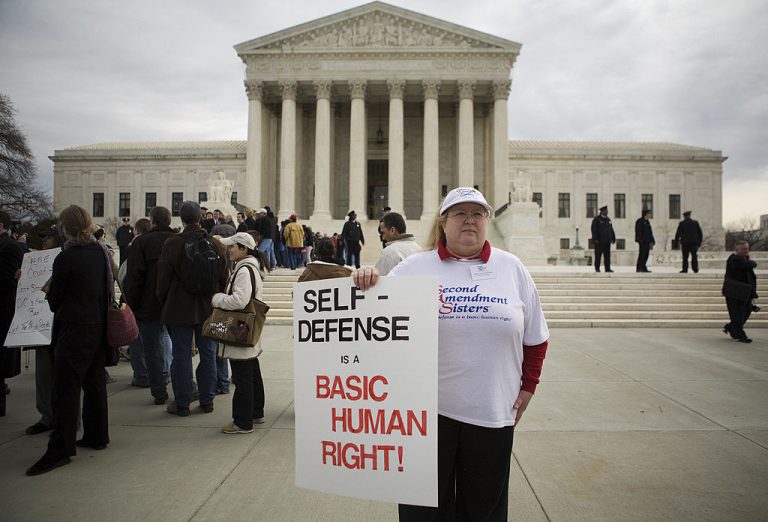In a recent ruling, the U.S. Supreme Court rejected an argument that police have the right to enter homes without a warrant to seize handguns. The decision arose from the Caniglia v. Strom case involving a couple’s domestic dispute and subsequent seizure of the husband’s guns.
On Aug. 20, 2015, Edward Caniglia and his wife Kim were engaged in a bitter verbal fight when he drew an unloaded gun and said, “Why don’t you just shoot me and get me out of my misery?” Kim then left the home and spent the night in a hotel.
When she called home the next day, Caniglia did not answer. Fearing that her husband might be suicidal, Kim called the Cranston city police in Providence County, Rhode Island. After officers arrived at Caniglia’s home, they questioned him and sent him to a hospital for evaluation.
Though officers initially promised Caniglia that they would not confiscate his guns, they nevertheless seized his two guns and his ammunition. After Caniglia returned home, he was shocked to find his guns missing.
“I immediately felt like it was a miscarriage of justice… If they can come and do this with these firearms, when can they take away my car because I ran a stop sign? It seemed arbitrary,” Caniglia told The Providence Journal.
Success
You are now signed up for our newsletter
Success
Check your email to complete sign up
When the police refused to return his guns without a court order, Caniglia, backed by the Rhode Island American Civil Liberties Union (ACLU), sued the department. The police returned the guns to Caniglia in December 2015.
Legal proceedings
In 2019, ruling in favor of the Cranston police, the U.S. District Court Chief Judge John J. McConnell Jr. stated that officers were acting in line with the community caretaking doctrine. The doctrine states that police officers can sometimes act as caretakers to prevent harm in emergency situations.
One year later, the 1st U.S. Circuit Court of Appeals upheld the decision. “Police officers must sometimes make on-the-spot judgments in harrowing and swiftly evolving circumstances. Such considerations argue persuasively in favor of affording the police some reasonable leeway in the performance of their community caretaking responsibilities,” the court said in its decision.
Caniglia subsequently filed for a review at the United States Supreme Court, arguing that the ruling was an unconstitutional expansion of the exception granted under the community caretaking doctrine. Back in 1973, the U.S. Supreme Court ruled in Cady v. Dombrowski that police could conduct warrantless searches under the community caretaking doctrine, but only in the case of searching a vehicle in a form of their custody to protect the public.
The Supreme Court conducted a virtual hearing in March this year, in which Supreme Court Justice Clarence Thomas stated that searches conducted on vehicles and homes are constitutionally distinguishable and that people have the right to be in their homes free from “unreasonable governmental intrusion” according to the rights guaranteed under the Fourth Amendment.
“A recognition of the existence of ‘community caretaking’ tasks, like rendering aid to motorists in disabled vehicles, is not an open-ended license to perform them anywhere… The question today is whether Cady’s acknowledgment of these ‘caretaking’ duties creates a standalone doctrine that justifies warrantless searches and seizures in the home. It does not,” Thomas wrote in the slip opinion.
In a concurrent ruling, Supreme Court Justice Brett Kavanaugh stated that the ` Amendment allows officers to enter a home only if they have “an objectively reasonable basis” for believing that help is needed and that the actions of the officers inside the premises are “reasonable under the circumstances.”
Steven Brown, executive director of the Rhode Island ACLU, said in a statement that the Fourth Amendment is a critical barrier to police intrusion in homes, and that they are “very pleased” that the court decided to reaffirm “this fundamental principle.” The Supreme Court ruling now returns the case to the Appeals Court, which can then return it to the District Court to address any issues that the Supreme Court opinion did not resolve.
















